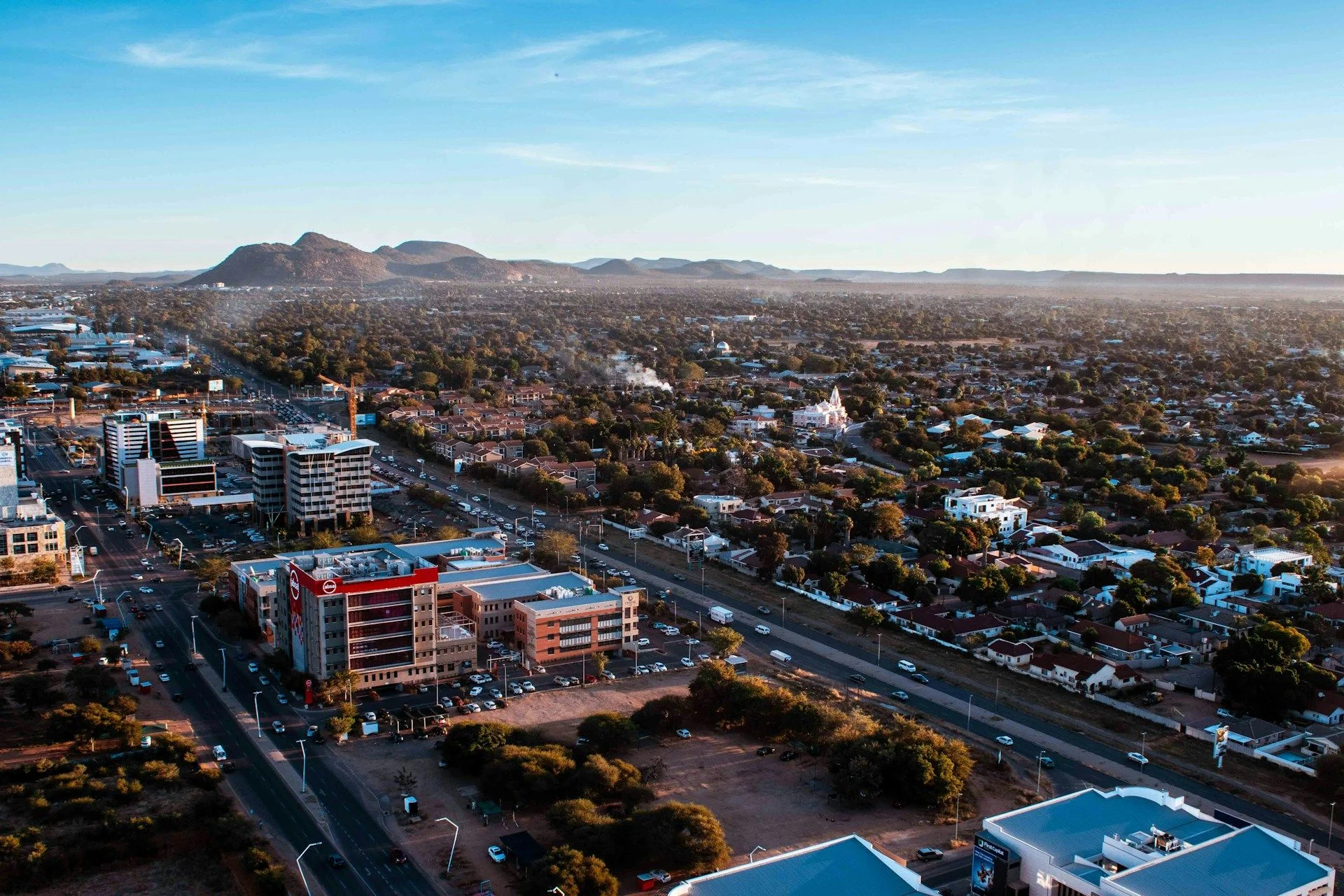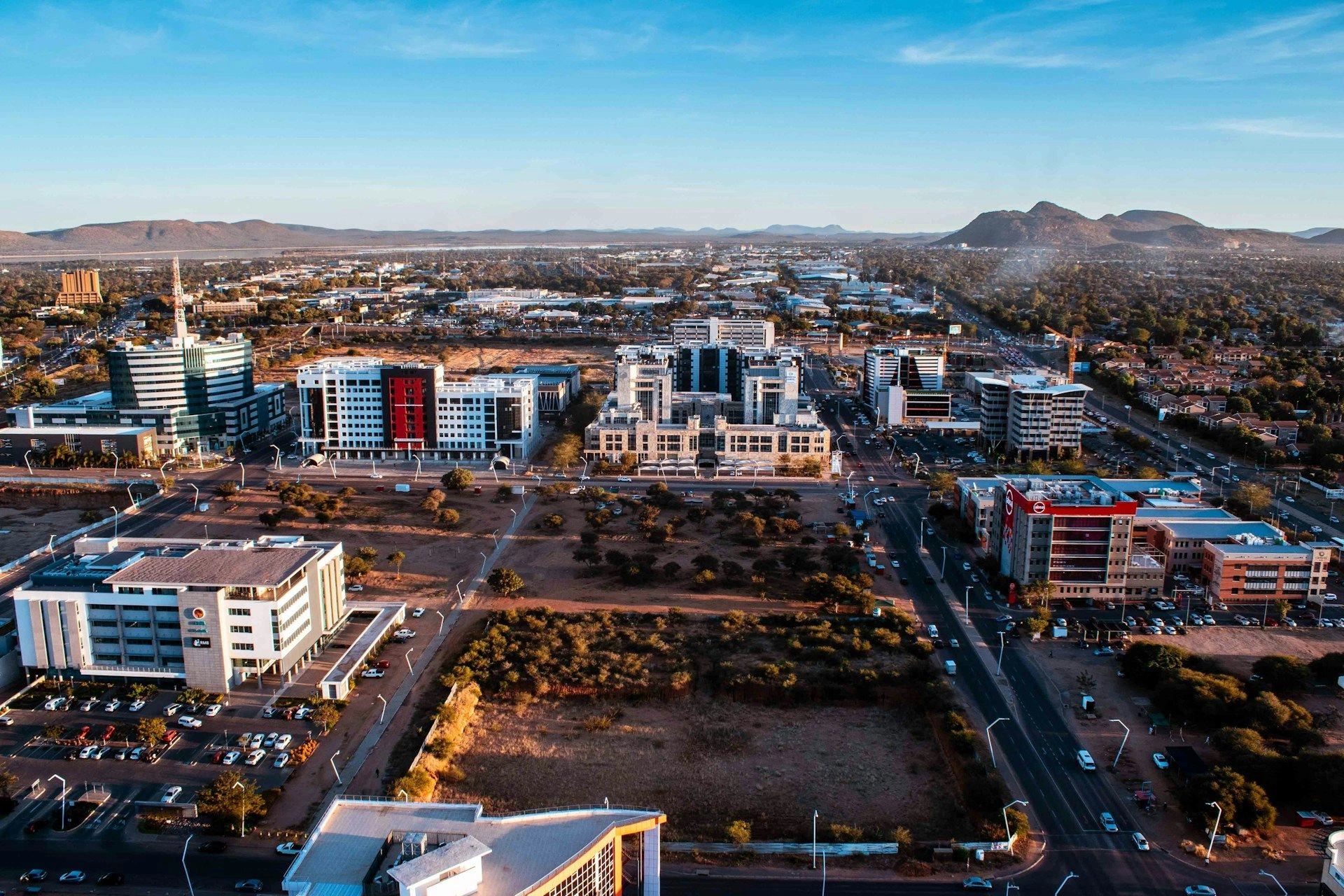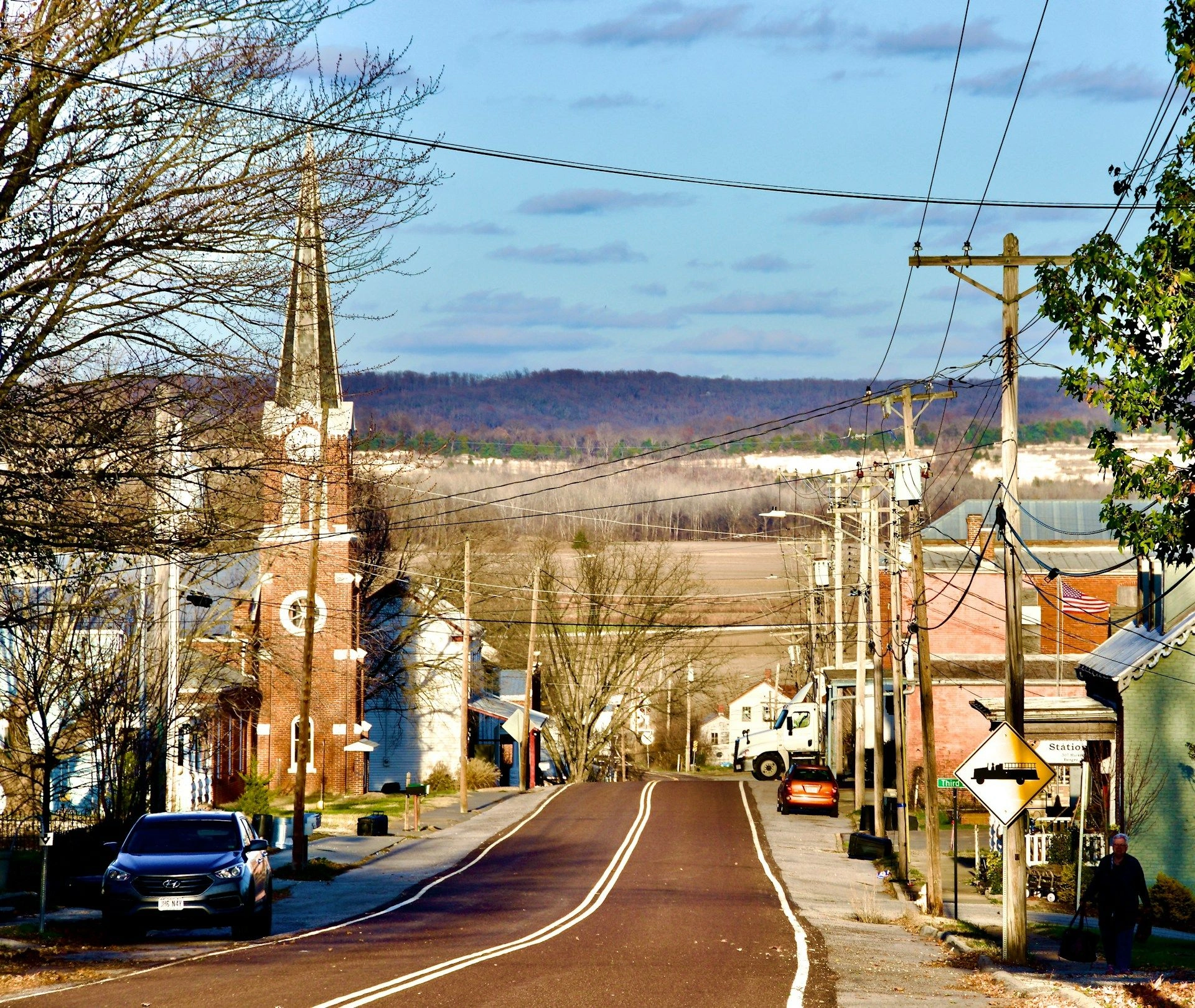Botswana Investment Property ListingsCompact cities with open skiesand infrastructure

Popular
cities and regions in Botswana
Best offers
in Botswana
Benefits of investment in
Botswana real estate
Stable governance and investor-friendly laws
Botswana is known for its economic transparency and pro-business climate.
Urban rental demand in Gaborone
Capital has growing interest from expats and regional professionals.
Secure land tenure system
Property ownership is backed by clear legal protections.
Stable governance and investor-friendly laws
Botswana is known for its economic transparency and pro-business climate.
Urban rental demand in Gaborone
Capital has growing interest from expats and regional professionals.
Secure land tenure system
Property ownership is backed by clear legal protections.

Useful articles
and recommendations from experts
Real Estate in Botswana: A Stable Investment Climate in Sub-Saharan Africa
Why Invest in Property in Botswana
Botswana stands out in Sub-Saharan Africa for its political stability, transparent governance, and strong legal protections for investors. With one of the highest sovereign credit ratings on the continent and a thriving mining-driven economy, Botswana has become a magnet for foreign direct investment, including in real estate. Its capital, Gaborone, serves as a key hub for government, finance, and expat communities. While the property market is relatively small and underdeveloped compared to global norms, it offers significant long-term potential — especially for investors seeking stable returns in residential or commercial rentals and long-term land banking.
Types of Property and Permitted Uses
Real estate in Botswana spans several categories with usage based on zoning laws and tenure:
- Urban Residential: Houses, townhouses, and apartments in cities like Gaborone and Francistown.
- Commercial Properties: Office spaces, retail units, and industrial zones located primarily in city centers.
- Agricultural Land: Cattle farms and crop-growing land across rural districts.
- Tourism/Hospitality: Safari lodges and eco-resorts in or near wildlife reserves (Okavango Delta, Chobe).
- Vacant Plots: Zoned land for future development, often held long-term as speculative investments.
Land use must align with the official classification under Botswana’s land use and zoning policies, with construction typically requiring approval from local planning authorities.
Land Tenure and Ownership Framework
Botswana operates under a unique land tenure system composed of three main categories:
- State Land (30%): Managed by the central government and leased out via fixed-term agreements.
- Tribal Land (70%): Held in trust by tribal land boards and primarily allocated to citizens; leasehold allocations available under certain conditions.
- Freehold Land (under 5%): Typically concentrated around urban centers and specific areas like Gaborone or Tuli Block. This is the only land type where outright ownership (including by foreigners) is available.
Foreigners cannot generally own land outright unless it is freehold land or they form a locally registered company with citizen shareholding. Most investments by non-citizens are done through leaseholds, commonly ranging from 50 to 99 years, renewable upon approval.
Foreign Ownership Rules
The Government of Botswana promotes local ownership but does allow limited foreign participation under the following conditions:
- Freehold Ownership: Foreigners can own property outright only if it is on freehold land, typically acquired via the secondary market.
- Leasehold Rights: State or tribal land can be leased by foreigners for residential, commercial, or tourism purposes, subject to land board or government approval.
- Company Ownership: Foreigners can register a company in Botswana, although certain property transactions may require local citizen partners.
- Tourism Concessions: Available via long-term lease and licensing for safari and lodge development near protected areas.
Due diligence, legal guidance, and early engagement with local land boards or investment authorities are essential when considering land transactions.
Prices, Liquidity, and Market Dynamics
Property prices in Botswana vary widely based on location, land tenure, and infrastructure:
| Location | Average Price per m² (USD) | Typical Property Type |
|---|---|---|
| Gaborone (CBD) | $800 – $1,200 | Modern apartments, townhouses |
| Gaborone (Suburbs) | $400 – $800 | Detached homes, residential plots |
| Francistown | $350 – $600 | Houses, commercial space |
| Kasane / Maun | $300 – $700 | Tourism lodges, leasehold land |
| Rural Villages | $100 – $300 | Tribal lease plots or farm land |
Liquidity can be low, especially outside Gaborone and Francistown. Land sales involving leaseholds often involve administrative delays. However, well-sited properties in Gaborone or tourism hubs can appreciate steadily with development and infrastructure improvements.
Transaction Costs and Taxes
Buying and owning property in Botswana involves the following typical costs:
- Transfer Duty: 5% of the property value (payable by buyer); first-time citizen buyers may be exempt.
- Capital Gains Tax: 5% to 25% based on property value and residency status (payable on resale).
- Stamp Duty: Approximately 1.5% of the transaction value.
- Attorney Fees: 1% to 2% of property value (negotiable).
- Registration and Survey Fees: Based on land type and region, often a few hundred dollars.
There is no property tax on undeveloped land. Developed land may attract a modest municipal tax depending on the city or district authority.
Rental Income and Investment Yields
Rental income is strongest in Gaborone, which houses embassies, corporate offices, and expatriates:
- Gaborone: Rental yields range from 5%–8% annually for apartments and townhouses.
- Francistown: Yields typically 4%–6% for mid-market residential rentals.
- Maun / Kasane: Lodge and tourism-based income models offer seasonal rental returns of 6%–10%, though affected by seasonality and eco-regulations.
Most leases are structured annually with renewable terms. Short-term rentals are less common outside of tourism zones but could offer growth potential with rising demand for serviced apartments and digital nomad-friendly units.
Investment Scenarios
Common investment strategies in Botswana include:
- Residential Buy-to-Let in Gaborone: Purchase of a modern unit for professional tenants. Entry cost: $80,000–$150,000.
- Land Banking in Tuli Block or Kweneng: Secure large land parcels with development potential or as agricultural holdings. Cost: $10,000–$50,000+ depending on size.
- Tourism Lodge Development (Maun): Lease tribal land and build safari lodge with ecotourism focus. Entry capital: $250,000–$500,000+ including infrastructure.
- Commercial Retail/Office in CBD: Units for lease to banks or corporations. Investment: $200,000–$500,000.
Infrastructure and Regional Highlights
- Gaborone: The capital is a growing financial center with modern infrastructure, malls, schools, and government institutions.
- Francistown: Industrial and transport hub with linkages to Zimbabwe and mining zones.
- Maun: Gateway to the Okavango Delta; hotspot for hospitality development.
- Kasane: Tourism access to Chobe National Park and Victoria Falls; ideal for eco-resorts.
- Serowe and Palapye: Inland towns growing due to university expansion and infrastructure projects.
Legal, Bureaucratic, and Practical Considerations
While Botswana is business-friendly, some challenges remain:
- Land Boards: Tribal land requires approval from local boards — a potentially slow process.
- Limited Financing: Mortgages are available but largely restricted to residents. Foreigners typically buy with cash or via offshore financing.
- Limited Listings: The property market is less transparent; agents are often informal, so in-person verification is crucial.
- Foreign Exchange Regulations: Funds repatriation is allowed, but large inflows/outflows require documentation.
Conclusion: A Secure Entry Point into African Real Estate
Botswana offers a unique combination of stability, investor protections, and relatively open land access compared to its regional peers. Though foreign ownership is limited to certain land types and leasehold structures, the market is well-regulated and has good long-term prospects — especially in Gaborone and the safari tourism corridors. For those seeking exposure to African real estate in a legally secure, low-corruption jurisdiction, Botswana is a strong contender with room for growth in both residential and commercial segments.


